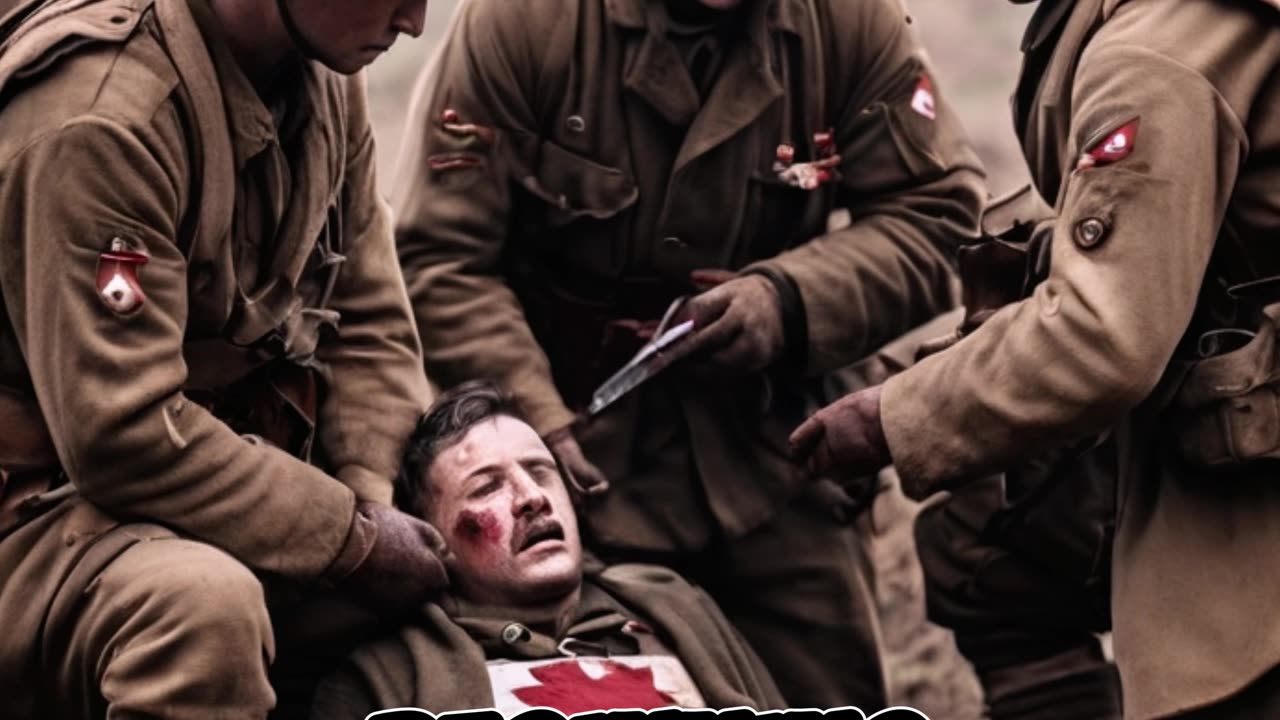Premium Only Content

D-Day Normandy Invasion and Liberation of Europe
The D-Day Normandy Invasion, also known as Operation Overlord, was one of the most pivotal events of World War II, marking the beginning of the end for Nazi Germany's control over Europe. On June 6, 1944, Allied forces consisting primarily of American, British, Canadian, and other Allied troops launched a massive amphibious assault on the beaches of Normandy, France.
Months of meticulous planning and preparation led to this momentous day. The Allies had amassed a vast armada of ships, aircraft, and troops, with the intention of establishing a secure foothold on the European continent. The invasion was aimed at opening up a Western Front, which would relieve pressure on the Soviet Union in the east and ultimately lead to the liberation of Western Europe from German occupation.
The operation involved a complex combination of airborne and amphibious assaults. In the early hours of the morning, under the cover of darkness, thousands of paratroopers were dropped behind enemy lines to disrupt German defenses and secure key objectives. Meanwhile, an armada of ships approached the Normandy coastline, carrying tens of thousands of infantry soldiers, tanks, and equipment.
As dawn broke, the Allied troops stormed the heavily fortified beaches codenamed Utah, Omaha, Gold, Juno, and Sword. Facing fierce resistance from well-entrenched German forces, the initial hours of the invasion were chaotic and bloody. However, through sheer determination, bravery, and overwhelming firepower, the Allies managed to establish a precarious foothold on the beaches.
Despite heavy casualties and daunting obstacles, Allied forces persevered and gradually pushed inland, overcoming minefields, barbed wire, and enemy strongpoints. The success of the operation hinged on the ability to rapidly secure vital beachheads and expand the landing zones to accommodate reinforcements and supplies.
In the days and weeks that followed, Allied troops fought ferocious battles as they advanced further into France, encountering stiff resistance from German forces determined to repel the invaders. Nevertheless, the Allies' superior numbers, air superiority, and logistical capabilities ultimately tipped the scales in their favor.
The Normandy Invasion marked a turning point in World War II, signaling the beginning of the end for Nazi Germany's dominance in Europe. It paved the way for the liberation of France and the eventual defeat of the Axis powers. The sacrifices made by the Allied soldiers on the beaches of Normandy are remembered as a testament to the courage, valor, and determination that prevailed in the face of tyranny and oppression.
-
 1:00:36
1:00:36
PMG
1 day ago $13.34 earned"Santa Trump is Giving Us Hope - But Will Johnson Stand Strong?"
108K14 -
 54:30
54:30
LFA TV
1 day agoThe German Strongman’s Arrival Is Imminent | Trumpet Daily 12.18.24 7PM EST
80.7K6 -
 2:04:11
2:04:11
Melonie Mac
13 hours agoGo Boom Live Ep 32! Soul Reaver Remastered!
66.7K10 -
 39:11
39:11
Sarah Westall
11 hours agoDigital Slavery and Playing with Fire: Money, Banking, and the Federal Reserve w/ Tom DiLorenzo
83.1K8 -
 1:38:38
1:38:38
2 MIKES LIVE
15 hours ago2 MIKES LIVE #157 ILLEGALS, PROTESTORS AND DRONES!
51.9K1 -
 1:01:03
1:01:03
LFA TV
1 day agoTHE LATEST SPENDING BILL IS AN ABOMINATION! | UNGOVERNED 12.18.24 5pm EST
52.3K50 -
 1:43:34
1:43:34
Redacted News
15 hours agoBREAKING! WARMONGERS PUSHING TRUMP TO LAUNCH PRE-EMPTIVE WAR WITH IRAN | Redacted News
167K287 -
 1:00:26
1:00:26
Candace Show Podcast
14 hours agoPiers Morgan x Candace Owens | Candace Ep 123
106K282 -
 2:06:51
2:06:51
Darkhorse Podcast
17 hours agoFollow the White Rabbit(s): The 256th Evolutionary Lens with Bret Weinstein and Heather Heying
70.3K32 -
 3:08:08
3:08:08
Scammer Payback
15 hours agoCalling Scammer Live
40.6K3